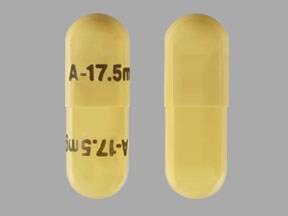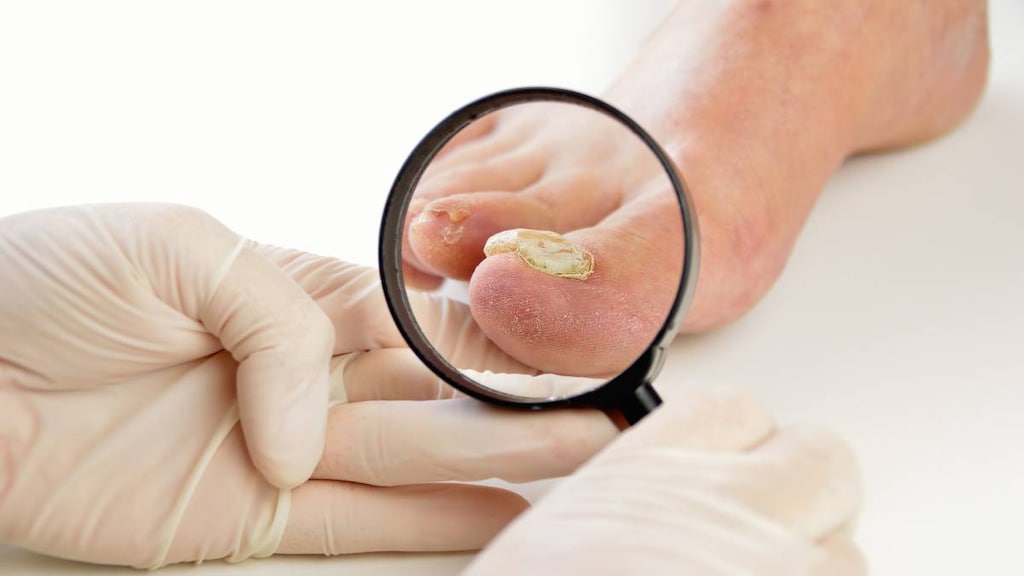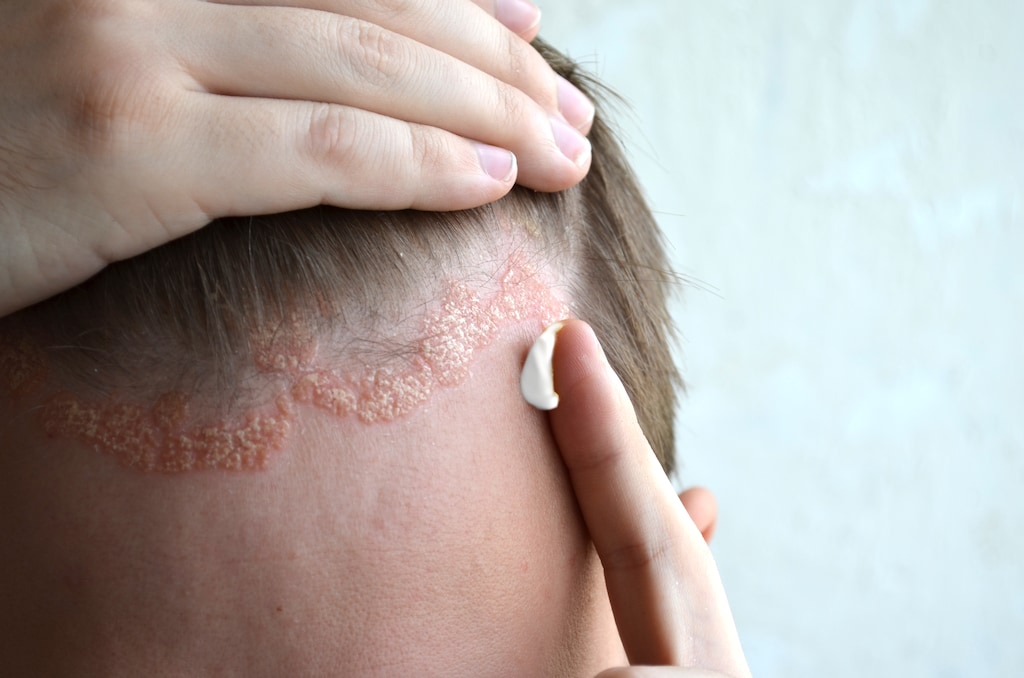What is Soriatane?
Soriatane is a medicine used to treat severe forms of psoriasis in adults. Psoriasis is a skin disease that causes cells in the outer layer of the skin to grow faster than normal and pile up on the skin’s surface. In the most common type of psoriasis, the skin becomes inflamed and produces red, thickened areas, often with silvery scales.
Because Soriatane can have serious side effects, you should talk with your prescriber about whether possible benefits of Soriatane outweigh its possible risks.
Soriatane may not work right away. You may have to wait 2 to 3 months before you get the full benefit of Soriatane. Psoriasis gets worse for some patients when they first start treatment with Soriatane.
Soriatane has not been studied in children.
What is the most important information I should know about Soriatane?
Soriatane can cause serious side effects, including:
- Severe birth defects. If you are a female who can get pregnant, you should use Soriatane only if you are not pregnant now, can avoid becoming pregnant for at least 3 years, and other medicines do not work for your severe psoriasis or you cannot use other psoriasis medicines. Information about effects on unborn babies and about how to avoid pregnancy is found in the next section: “What are the important warnings and instructions for females taking Soriatane?”

- Liver problems, including abnormal liver function tests and inflammation of your liver (hepatitis). Your prescriber should do blood tests to check how your liver is working before you start taking and during treatment with Soriatane. Stop taking Soriatane and call your prescriber right away if you have any of the following signs or symptoms of a serious liver problem:
- yellowing of your skin or the whites of your eyes
- nausea and vomiting
- loss of appetite
- dark urine
What are the important warnings and instructions for females taking Soriatane?
- Before you receive your first prescription for Soriatane, you should have discussed and signed a Patient Agreement/Informed Consent for Female Patients form with your prescriber. This is to help make sure you understand the risk of birth defects and how to avoid getting pregnant. If you did not talk to your prescriber about this and sign the form, contact your prescriber.
Important: If you are a female who can become pregnant:
- You must not take Soriatane if you are pregnant or might become pregnant during treatment or at any time for at least 3 years after you stop treatment because Soriatane can cause severe birth defects.
- During treatment with Soriatane and for 2 months after you stop treatment with Soriatane, you must avoid drinks, foods, and all medicines that contain alcohol. This includes over-the-counter products that contain alcohol. Avoiding alcohol is very important, because alcohol changes Soriatane into a drug that may take longer than 3 years to leave your body. The chance of birth defects may last longer than 3 years if you swallow any form of alcohol during treatment with Soriatane and for 2 months after you stop taking Soriatane.
- You and your prescriber must be sure you are not pregnant before you start therapy with Soriatane. You must have negative results from 2 pregnancy tests before you start treatment with Soriatane. A negative result shows you are not pregnant. Because it takes a few days after pregnancy begins for a test to show that you are pregnant, the first negative test may not ensure you are not pregnant. Do not start Soriatane until you have negative results from 2 pregnancy tests.
- The first pregnancy test (urine or blood) will be done at the time you and your prescriber decide if Soriatane might be right for you.
- The second pregnancy test will usually be done during the first 5 days of your menstrual period. You must start taking Soriatane within 7 days of when the urine or blood for the second pregnancy test is collected.
- After you start taking Soriatane, you must have a pregnancy test repeated each month that you are taking Soriatane. This is to be sure that you are not pregnant during treatment because Soriatane can cause birth defects. In addition, your prescription of Soriatane will be limited to a monthly supply.
- For at least 3 years after stopping treatment with Soriatane, you must have a pregnancy test repeated every 3 months to make sure that you are not pregnant.
- Discuss effective birth control (contraception) with your prescriber. You must use 2 effective forms of birth control (contraception) at the same time during all of the following:
- for at least 1 month before beginning treatment with Soriatane
- during treatment with Soriatane
- for at least 3 years after stopping treatment with Soriatane
- If you are sexually active, you must use 2 effective forms of birth control (contraception) at the same time even if you think you cannot become pregnant, unless 1 of the following is true for you:
- You had your womb (uterus) removed during an operation (a hysterectomy).
- Your prescriber said you have gone completely through menopause (the “change of life”).
- You can get a free birth control counseling session and pregnancy testing from aprescriberor family planning expert. Your prescriber can give you a Contraception Counseling Referral Form for this free session.
The following are considered effective forms of birth control:
Primary Forms:
- having your tubes tied (tubal ligation)
- partner’s vasectomy
- IUD (Intrauterine device)
- birth control pills that contain both estrogen and progestin (combination oral contraceptives); not progestin-only “minipills”
- hormonal birth control products that are injected, implanted, or inserted in your body
- birth control patch
Secondary Forms (use with a Primary Form):
- diaphragms with spermicide
- condoms (with or without spermicide)
- cervical caps with spermicide
- vaginal sponge (contains spermicide)
At least 1 of your 2 methods of birth control must be a primary form.
- If you have sex at any time without using 2 effective forms of birth control (contraception) at the same time, or if you get pregnant or miss your period, stop using Soriatane and call your prescriber right away.
- Consider “Emergency Contraception” (EC) if you have sex with a male without correctly using 2 effective forms of birth control (contraception) at the same time. EC is also called “emergency birth control” which includes the “morning after” pill. Contact your prescriber as soon as possible if you have sex without using 2 effective forms of birth control (contraception) at the same time, because EC works best if it is used within 1 or 2 days after sex. EC is not a replacement for your usual 2 effective forms of birth control (contraception) because it is not as effective as regular birth control methods.
Contact your prescriber, women’s health centers, pharmacies, or hospital emergency rooms for information on how to get emergency contraception. A 24-hour, toll-free number (1-800-739-6700) is also available for patients to receive automated birth control and emergency contraception information. - Stop taking Soriatane right away and contact your prescriber if you get pregnant while taking Soriatane or at any time for at least 3 years after treatment has stopped. You need to discuss the possible effects on the unborn baby with your prescriber.
- If you do become pregnant while taking Soriatane or at any time for at least 3 years after stopping Soriatane, you should report your pregnancy to Stiefel Laboratories, Inc. at 1-888-784-3335 (1-888-STIEFEL) or directly to the Food and Drug Administration (FDA) MedWatch program at 1-800-FDA-1088. Your name will be kept in private (confidential). The information you share will help the FDA and the manufacturer evaluate the Pregnancy Prevention Program for Soriatane.
- Do not take Soriatane if you are breastfeeding. Soriatane can pass into your milk and may harm your baby. You will need to choose either to breast feed or take Soriatane, but not both.
What should males know before taking Soriatane?
Small amounts of Soriatane are found in the semen of males taking Soriatane. Based upon available information, it appears that these small amounts of Soriatane in semen pose little, if any, risk to an unborn child while a male patient is taking the drug or after it is discontinued. Discuss any concerns you have about this with your prescriber.
All patients should read the rest of this Medication Guide.
Who should not take Soriatane?
- Do not take Soriatane if you can get pregnant. Do not take Soriatane if you are pregnant or might get pregnant during treatment with Soriatane or at any time for at least 3 years after you stop treatment with Soriatane (see “What are the important warnings and instructions for females taking Soriatane?”).
- Do not take Soriatane if you are breastfeeding. Soriatane can pass into your milk and may harm your baby. You will need to choose either to breast feed or take Soriatane, but not both.
- Do not take Soriatane if you have severe liver or kidney disease.
- Do not take Soriatane if you have repeated high blood lipids (fat in the blood).
- Do not take Soriatane if you take these medicines:
- methotrexate
- tetracyclines
The use of these medicines with Soriatane may cause serious side effects.
- Do not take Soriatane if you are allergic to acitretin, the active ingredient in Soriatane, to any of the other ingredients in Soriatane (see the end of this Medication Guide for a list of all the ingredients in Soriatane), or to any medicines that are like Soriatane. Ask your prescriber or pharmacist if any medicines you are allergic to are like Soriatane.
What should I tell my healthcare provider before taking Soriatane?
Before taking Soriatane, tell your prescriber about all your medical conditions, including if you have or have had:
- diabetes or high blood sugar
- liver problems
- kidney problems
- high cholesterol or high triglycerides (fat in the blood)
- heart disease
- depression
- alcoholism
- an allergic reaction to a medication
Your prescriber needs this information to decide if Soriatane is right for you and to know what dose is best for you.
Tell your prescriber about all the medicines you take, including prescription and over-the-counter medicines, vitamins, and herbal supplements.
Some medicines can cause serious side effects if taken while you also take Soriatane. Some medicines may affect how Soriatane works, or Soriatane may affect how other medicines work.
Be especially sure to tell your prescriber if you are taking the following medicines:
- methotrexate
- tetracyclines
- glyburide
- phenytoin
- vitamin A supplements
- progestin-only oral contraceptives (“minipills”)
- Tegison or Tigason (etretinate). Tell your prescriber if you have ever taken this medicine in the past.
- St. John’s wort herbal supplement
Tell your prescriber if you are getting phototherapy treatment. Your doses of phototherapy may need to be changed to prevent a burn.
How should I take Soriatane?
- Take Soriatane with food.
- Be sure to take your medicine as prescribed by your prescriber. The dose of Soriatane varies from patient to patient. The number of capsules you must take is chosen specially for you by your prescriber. This dose may change during treatment.
- If you miss a dose, do not double the next dose. Skip the missed dose and resume your normal schedule.
- If you take too much Soriatane (overdose), call your local poison control center or emergency room.
You should have blood tests for liver function, cholesterol, and triglycerides before starting treatment and during treatment to check your body’s response to Soriatane. Your prescriber may also do other tests.
Once you stop taking Soriatane, your psoriasis may return. Do not treat this new psoriasis with leftover Soriatane. It is important to see your prescriber again for treatment recommendations because your situation may have changed.
What should I avoid while taking Soriatane?
- Avoid pregnancy. See “What is the most important information I should know about Soriatane?”, and “What are the important warnings and instructions for females taking Soriatane?”
- Avoid breastfeeding. See “What are the important warnings and instructions for females taking Soriatane?”
- Avoid alcohol. Females who are able to become pregnant must avoid drinks, foods, medicines, and over-the-counter products that contain alcohol. The risk of birth defects may continue for longer than 3 years if you swallow any form of alcohol during treatment with Soriatane and for 2 months after stopping Soriatane (see “What are the important warnings and instructions for females taking Soriatane?”).
- Avoid giving blood. Do not donate blood while you are taking Soriatane and for at least 3 years after stopping treatment with Soriatane. Soriatane in your blood can harm an unborn baby if your blood is given to a pregnant woman. Soriatane does not affect your ability to receive a blood transfusion.
- Avoid progestin-only birth control pills (“minipills”). This type of birth control pill may not work while you take Soriatane. Ask your prescriber if you are not sure what type of pills you are using.
- Avoid night driving if you develop any sudden vision problems. Stop taking Soriatane and call your prescriber if this occurs (see “What are the possible side effects of Soriatane?”).
- Avoid non-medical ultraviolet (UV) light. Soriatane can make your skin more sensitive to UV light. Do not use sunlamps, and avoid sunlight as much as possible. If you are taking light treatment (phototherapy), your prescriber may need to change your light dosages to avoid burns.
- Avoid dietary supplements containing vitamin A. Soriatane is related to vitamin A. Therefore, do not take supplements containing vitamin A, because they may add to the unwanted effects of Soriatane. Check with your prescriber or pharmacist if you have any questions about vitamin supplements.
- Do not share Soriatane with anyone else, even if they have the same symptoms. Your medicine may harm them or their unborn child.
What are the possible side effects of Soriatane?
Soriatane can cause serious side effects, including:
- See “What is the most important information I should know about Soriatane?” and “What are the important warnings and instructions for females taking Soriatane?”
Stop taking Soriatane and call your prescriber right away if you get the following signs or symptoms of possible serious side effects:
- Bad headaches, nausea, vomiting, blurred vision. These symptoms can be signs of increased brain pressure that can lead to blindness or even death.
- Vision problems. Decreased vision in the dark (night blindness). Since this can start suddenly, you should be very careful when driving at night. This problem usually goes away when treatment with Soriatane stops. Stop taking Soriatane and call your prescriber if you develop any vision problems or eye pain.
- Depression. There have been some reports of patients developing mental problems including a depressed mood, aggressive feelings, or thoughts of ending their own life (suicide). These events, including suicidal behavior, have been reported in patients taking other drugs similar to Soriatane as well as patients taking Soriatane. Since other things may have contributed to these problems, it is not known if they are related to Soriatane.
- Aches or pains in your bones, joints, muscles, or back, trouble moving, or loss of feeling in your hands or feet. These can be signs of abnormal changes to your bones or muscles.
- Frequent urination, great thirst or hunger. Soriatane can affect blood sugar control, even if you do not already have diabetes. These are some of the signs of high blood sugar.
- Shortness of breath, dizziness, nausea, chest pain, weakness, trouble speaking, or swelling of a leg. These may be signs of a heart attack, blood clots, or stroke. Soriatane can cause serious changes in blood fats (lipids). It is possible for these changes to cause blood vessel blockages that lead to heart attacks, strokes, or blood clots.
- Blood vessel problems. Soriatane can cause fluid to leak out of your blood vessels into your body tissues. Call your prescriber right away if you have any of the following symptoms: sudden swelling in one part of your body or all over your body, weight gain, fever, lightheadedness or feeling faint, or muscle aches. If this happens, your prescriber will tell you to stop taking Soriatane.
- Serious allergic reactions. See “Who should not take Soriatane?” Serious allergic reactions can happen during treatment with Soriatane. Call your prescriber right away if you get any of the following symptoms of an allergic reaction: hives, itching, swelling of your face, mouth, or tongue, or problems breathing. If this happens, stop taking Soriatane and do not take it again.
- Serious skin problems. Soriatane can cause skin problems that can begin in a small area and then spread over large areas of your body. Call your prescriber right away if your skin becomes red and swollen (inflamed), you have peeling of your skin, or your skin becomes itchy and painful. You should stop Soriatane if this happens.
Common side effects
- If you develop any of these side effects or any unusual reaction, check with your prescriber to find out if you need to change the amount of Soriatane you take. These side effects usually get better if the dose of Soriatane is reduced or Soriatane is stopped.
- Chapped lips, peeling fingertips, palms, and soles, itching, scaly skin all over, weak nails, sticky or fragile (weak) skin, runny or dry nose, or nosebleeds. Your prescriber or pharmacist can recommend a lotion or cream to help treat drying or chapping.
- Dry mouth
- Joint pain
- Tight muscles
- Hair loss. Most patients have some hair loss, but this condition varies among patients. No one can tell if you will lose hair, how much hair you may lose or if and when it may grow back. You may also lose your eyelashes.
- Dry eyes. Soriatane may dry your eyes. Wearing contact lenses may be uncomfortable during and after treatment with Soriatane because of the dry feeling in your eyes. If this happens, remove your contact lenses and call your prescriber. Also read the section about vision problems under “Serious side effects”.
- Rise in blood fats (lipids). Soriatane can cause your blood fats (lipids) to rise. Most of the time this is not serious. But sometimes the increase can become a serious problem (see information under “Serious side effects”). You should have blood tests as directed by your prescriber.
Psoriasis gets worse for some patients when they first start treatment with Soriatane. Some patients have more redness or itching. If this happens, tell your prescriber. These symptoms usually get better as treatment continues, but your prescriber may need to change the amount of your medicine.
These are not all the possible side effects of Soriatane. For more information, ask your prescriber or pharmacist.
Call your doctor for medical advice about side effects. You may report side effects to FDA at 1-800-FDA-1088.
Soriatane Images
General information about the safe and effective use of Soriatane
Medicines are sometimes prescribed for purposes other than those listed in a Medication Guide. Do not use Soriatane for a condition for which it was not prescribed. Do not give Soriatane to other people, even if they have the same symptoms that you have. It may harm them. You can ask your pharmacist or healthcare provider for information about Soriatane that is written for health professionals.
How should I store Soriatane?
- Store Soriatane between 59oF to 77oF (15oC to 25oC).
- Keep Soriatane away from sunlight, high temperature, and humidity.
Keep Soriatane and all medicines out of the reach of children.
What are the ingredients in Soriatane?
Active ingredient: acitretin
Inactive ingredients: black monogramming ink, gelatin, maltodextrin (a mixture of polysaccharides), microcrystalline cellulose, and sodium ascorbate. Gelatin capsule shells contain gelatin, iron oxide (yellow, black, and red), and titanium dioxide. They may also contain benzyl alcohol, carboxymethylcellulose sodium, edetate calcium disodium.
For more information about SORIATANE go www.soriatane.com or call 1-888-784-3335.






